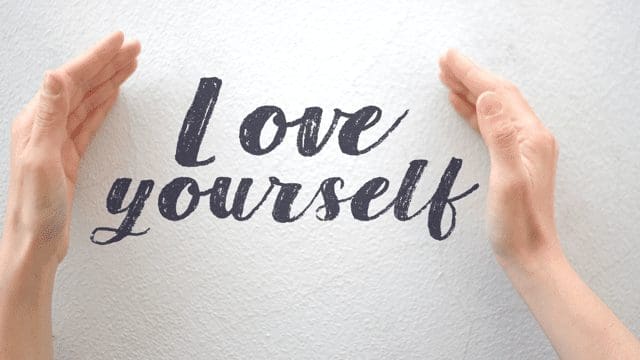Most of us have never learned how to have compassion for ourselves.
Learn the importance of understanding self-compassion and how it can improve your resilience, reduce stress, and promote personal growth. I remember when I first learned about self-compassion during my doctoral studies at NYU, and my professor challenged me to consider, “Think about the way you speak to yourself. If you spoke to your friends the way you speak to yourself, would you have any?”
I knew right away that my answer was, “Hell no!” I would never speak to my friends or family the way I spoke to myself. I often said things to myself like, “You’re such an idiot! How could you do this?,” or, “What the heck were you thinking?”
When I speak to people I care about (and even people I don’t care about, for that matter), I am much more forgiving and kind. I offer encouragement and support. I am compassionate.\
Self-compassion refers to the tendency to be supportive and understanding with ourselves rather than harshly critical or judgmental.
Instead of tearing ourselves to shreds when we fail or make a mistake, we soothe and comfort ourselves, providing the caring concern needed to try again.
But how many of us are good at being compassionate to ourselves?
Think of all the generous, caring people you know who constantly beat themselves up. For some strange reason our culture tells us that this is the way we should be — women especially — or else we’ll become self-centered egomaniacs. But is it true?
The answer is NO.
All beating ourselves up does is make us feel depressed, insecure and afraid to take on new challenges because we’re afraid of the self-punishment that will follow if we fail. It also makes it harder for us to see ourselves clearly because it’s too painful. Much better to blame my problems on someone else so that I can avoid my inner tyrant.
So, what exactly is self-compassion? Well, self-compassion includes three main pillars:
- Mindfulness
When you’re self-compassionate, you are aware of your own suffering. You bring your attention inward to notice your thoughts, feelings, and sensations. As you attune to ourselves, you are non-judgmental and curious.
Without self-compassion, you might say to yourself, “I can’t believe I’m so stressed and constantly thinking about the report that’s due tomorrow. Why is there a stupid knot in my stomach?”
With self-compassion, you would notice with curiosity, “Huh, I’m noticing a knot in my stomach. I’m feeling stressed right now. I’m aware that I’m thinking about the big report that’s due tomorrow.”
Notice how the judgy-ness is gone? - Common Humanity
Common humanity is an aspirational concept that challenges us to consider that we all have something in common…we’re all struggling in some way, and we all wish to find peace. When I realize that I’m not alone in my suffering, I feel comforted.
You may feel isolated when you’re struggling, because you might think you’re the only one having a tough time. Social media certainly does not help! When I’m going through a tough time and see everyone else on Instagram having their best times ever, I feel even more alone.
Common humanity reminds you that you’re NOT the only one struggling. In fact, your suffering makes you a part of Team Human. - Self-Kindness
This refers to your inner voice, which might sound more like an inner critic. When you’re practicing self-compassion, you treat yourself the way you treat someone you respect and appreciate – with kindness, encouragement, and mentorship. Instead of berating yourself each time you mess up, you say, “I’m human and make mistakes. What can I learn from this?” And then you move on. - Reaching out for support
If you’re paying attention, you’ve noticed that I said self-compassion has three pillars. Well…I’ve added a fourth.
Please know that self-compassion does NOT mean that you have to deal with your suffering alone. In fact, when you’re attuning to your body, you might notice that it’s asking you to reach out for support. Listen to that inner wisdom! Your community members and colleagues want to support you in the same way you want to support them when they’re struggling. Please don’t hesitate to ask for help if you’re really having a tough time.
Self-compassion isn’t easy to do, especially if you’ve spent your life being hard on yourself for every little mistake. I can tell you from personal experience, though, that self-compassion is a game-changer. Once I began treating myself the way I treat my friends and family, my life became much more joyful and meaningful. I’m not as afraid to make mistakes, because I realize I’m human. I recognize when I’m stressed or having a hard time, and I take time to heal my pain and sadness instead of pushing through and pretending I’m fine.
I BASICALLY GIVE MYSELF A FREAKING BREAK.






